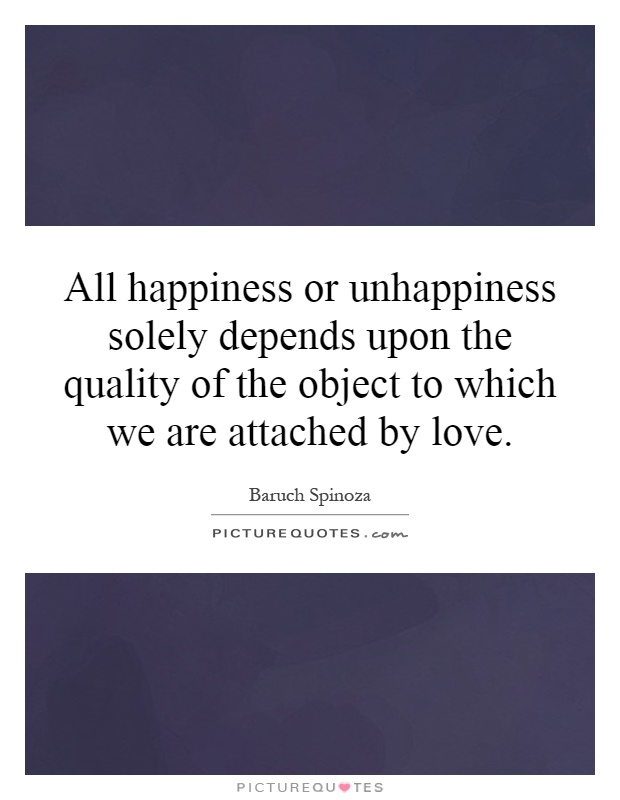All happiness or unhappiness solely depends upon the quality of the object to which we are attached by love

All happiness or unhappiness solely depends upon the quality of the object to which we are attached by love
Baruch Spinoza, a renowned philosopher of the 17th century, believed that the key to happiness lies in the quality of the objects to which we are attached by love. According to Spinoza, our emotions and well-being are directly influenced by the things we hold dear and the relationships we cultivate. In his view, the quality of our attachments determines our overall happiness or unhappiness.Spinoza's philosophy is rooted in his belief that human beings are driven by their desires and affections. He posited that our emotions are a result of our interactions with the world around us, and that the quality of these interactions shapes our emotional state. For Spinoza, love is a powerful force that can either uplift us or bring us down, depending on the nature of the object of our affection.
In Spinoza's view, attaching ourselves to objects or people that are virtuous, noble, and good can lead to happiness and fulfillment. When we love something that is worthy of our affection, we experience joy, contentment, and a sense of purpose. On the other hand, attaching ourselves to objects or people that are harmful, toxic, or unworthy can lead to unhappiness, suffering, and discontent.
Spinoza's philosophy emphasizes the importance of cultivating healthy and positive relationships in order to achieve true happiness. By surrounding ourselves with things that are good and beneficial, we can elevate our emotional state and experience a greater sense of well-being. Conversely, by letting go of attachments that are negative or harmful, we can free ourselves from unnecessary suffering and find peace and contentment.












 Friendship Quotes
Friendship Quotes Love Quotes
Love Quotes Life Quotes
Life Quotes Funny Quotes
Funny Quotes Motivational Quotes
Motivational Quotes Inspirational Quotes
Inspirational Quotes